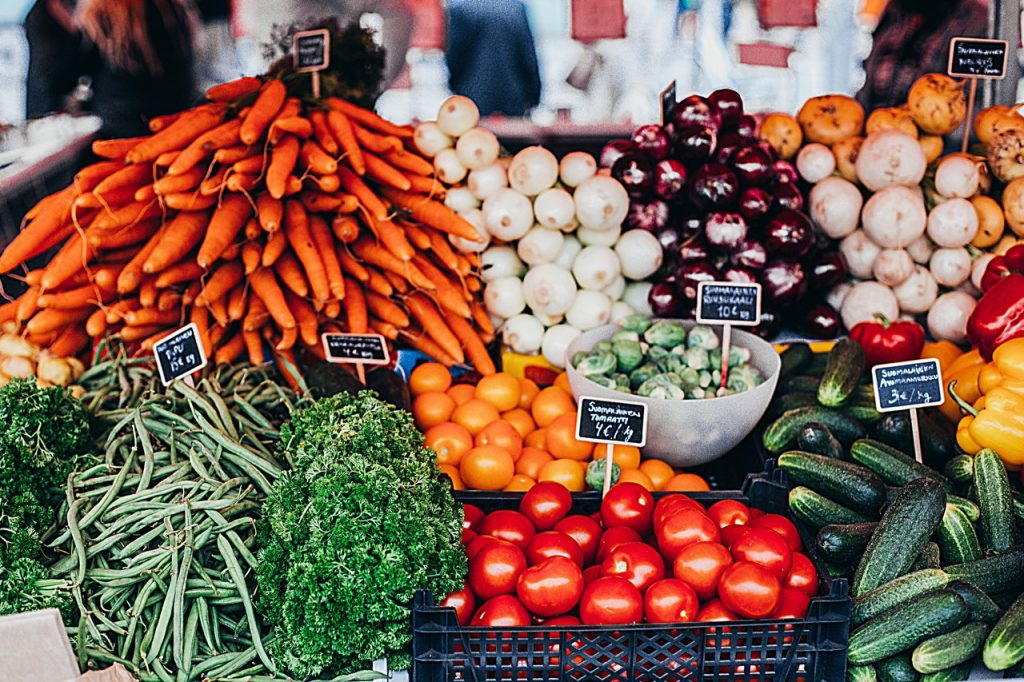Vegetables are one of the five food groups considered an important building block of a healthy diet. They are good sources of vitamins, minerals, and fiber, and a diet rich in vegetables has many positive health impacts, such as reducing chronic disease risk and healthy weight maintenance. Nutrients in vegetables are also linked to healthy skin, teeth, and a robust immune system.

Long-Term Health Benefits
Diets rich in vegetables may contribute to many desirable life-long health benefits, such as:
- Reducing the risk of heart disease, type 2 diabetes, and certain forms of cancer
- Lowering blood pressure and the risk of obesity
- Decreasing the risk of bone loss and developing kidney stones
Eat Vegetables at Every Meal
There are lots of great ways to enjoy vegetables! They can be eaten raw, cooked, fresh, frozen, canned, or dried/dehydrated, as well as whole, cut-up, or mashed. Depending on one’s age, sex, and activity level, it is recommended that adults eat between 2-3 cups of vegetables daily.
Try these helpful suggestions for enjoying vegetables every day:
- Variety is the key to a healthy diet, so treat yourself to some new vegetables—especially those with deep colors, like dark green, red, or orange!
- Buy in-season vegetables for peak taste and a lower cost.
- Keep frozen and canned vegetables on hand to add to soups or salads, or simply heat in the microwave for a quick, healthy side dish.
- Buy vegetables that are pre-washed and cut (or prepare your own), and refrigerate in single-serving containers or snack bags. Enjoy throughout the day for a crunchy, healthy pick-me-up!
Learn more about vegetables and how much you should be eating daily at: http://www.choosemyplate.gov/food-groups/vegetables.html
Did You Know?
Beans and peas (also called legumes) are unique since they can be categorized into two food groups, depending on their maturity when eaten.
Enjoyed fresh, they are considered vegetables:
- Green peas
- Green string beans
- Green lima beans
In their mature form, they are classified as protein foods:
- Kidney beans
- Pinto beans
- Black beans
- Black-eyed peas
- Chickpeas
- Split peas
- Lentils


